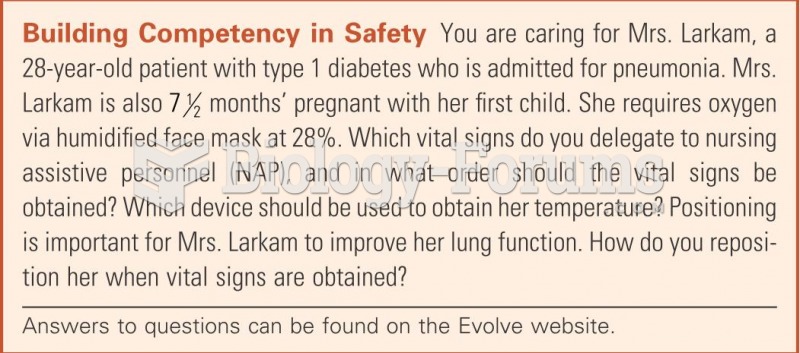This topic contains a solution. Click here to go to the answer
|
|
|
Did you know?
An identified risk factor for osteoporosis is the intake of excessive amounts of vitamin A. Dietary intake of approximately double the recommended daily amount of vitamin A, by women, has been shown to reduce bone mineral density and increase the chances for hip fractures compared with women who consumed the recommended daily amount (or less) of vitamin A.
Did you know?
Green tea is able to stop the scent of garlic or onion from causing bad breath.
Did you know?
The familiar sounds of your heart are made by the heart's valves as they open and close.
Did you know?
Women are 50% to 75% more likely than men to experience an adverse drug reaction.
Did you know?
More than 2,500 barbiturates have been synthesized. At the height of their popularity, about 50 were marketed for human use.







